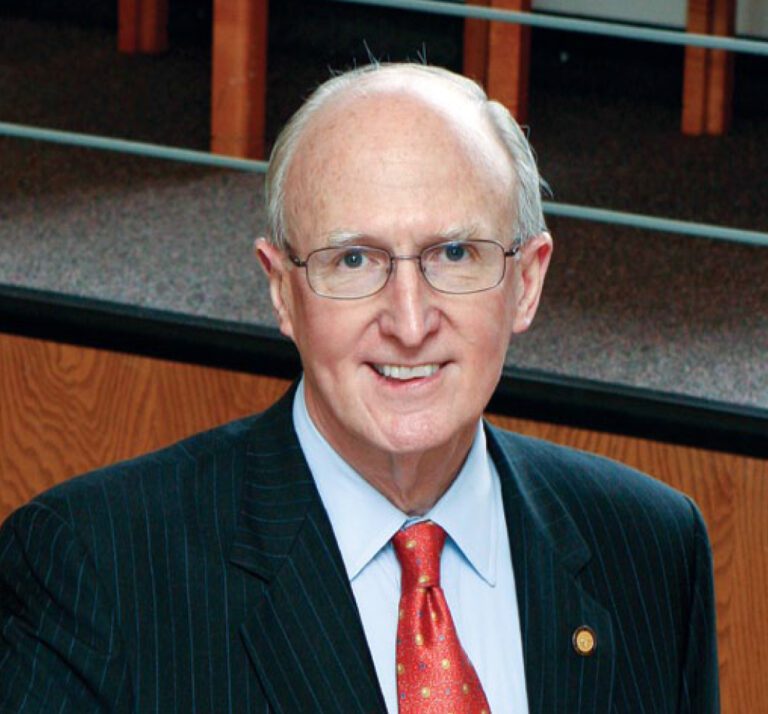
By Robert A. Scott
One of my most vivid memories is of the several-hour drive from Hingham, MA. (near Boston) to Mount Vernon, a suburb of New York City, on Thanksgiving in 1948.
I was 9.
For what now seems like the entire journey, my aunt and uncle and younger cousin, with whom I was living, and I laughed and talked, wondered at the glittering snow-covered branches and riverbanks, and sang “Over the River and Through the Woods, to Grandfather’s House We Go…”
I remember Thanksgivings even more than Christmases, Easters, and birthdays. In my childhood, Thanksgiving had a dynamic, spiritual quality that gifts and new clothes failed to match. There were other, more emotional, church-related experiences, but they are now yellowed and fragile mementoes. Thanksgiving memories are enduring.
Thanksgivings were special because they were occasions for two-dozen Scotts and their spouses and children to congregate at the family home in Mount Vernon. The old three-story frame house creaked and fairly swayed with the activity. The mood set by the dark wood doors and moldings and the gray porch was overcome by kisses and hugs and chatter.
The family was a varied group that included four generations, from Doug, a toddler, to Grandpa Scott at 80, and a variety of occupations: engineer, factory worker, and serious, “straight” in their endeavors. Grandpa came to this country from Northern Ireland in the late 1800s, and in New York City met and married a lovely lady from Kentucky. They had six children, all but one of them alive and in Mount Vernon for the day.
No one person was the host at Thanksgiving, although Grandpa was the patriarch and Uncle Phil, the Congregational minister, led us in a prayer for good health and world peace. It was a communal gathering that shared Grandma and Grandpa’s house, Aunt Winfred’s turkey stuffing, Aunt Sue’s pies and Uncle Ed’s stories.
While all the women except Grandma, infirm in her 77th year, and a few of the men, were preparing the feast, others gathered in small groups to talk about the world, their lives or earlier family gatherings.
By midday, the kitchen was center stage. Pots, pie-tins, glasses and silver seemed to leap with purpose. Food was everywhere: a plump turkey; bowls of stuffing; big pots of potatoes, yams, string beans, and creamed onions; jars of cranberry; and gallons of milk. The room somehow withstood the movement of many hands that at times got in each other’s way.
Aunt Ethel waved the dinner bell, and its ring brought everyone to the long table that was formed from several smaller ones, both wood and metal, put end to end and covered with fine Irish linen. Uncle Phil’s prayer was brief, poetic and for us.
The meal was fantastic. There was too much to eat, but the nourishment of food and love was savored by all who ate there. And those who had traveled from afar longed to live near those who saw each other more than once a year and had even more bonds to share.
After dessert, a choice of apple, mince, and pumpkin pie (most of us had a small slice of each with ice cream on top), a dishwashing crew went to work while others went in different directions. Some sang by the piano, others went for walks or played games, and several got together to discuss the current family problem, Aunt Emma’s son Sam, who was a hellion in school and in the neighborhood. In some years, there were more formal meetings to discuss major issues, such as Great Aunt Maud’s will or Aunt Sadie’s desire to marry someone of a different faith.
The day’s activities were based on the wants and needs of the large, mixed group of relatives who shared love and heritage. However, each person was unique, with special interests and personal needs, and his or her individuality was never limited by the family, even when the group had special concerns.
Thanksgivings are times for thanks. For some, religious services fulfill this need. For others, family gatherings such as those at Thanksgiving are times to express gratitude, reflect on family ties, voice a plea for world peace and find renewal.
Robert A. Scott is president emeritus, Adelphi University; author, “How University Boards Work,” Johns Hopkins University Press, 2018; Eric Hoffer Book Awardee, 2019






